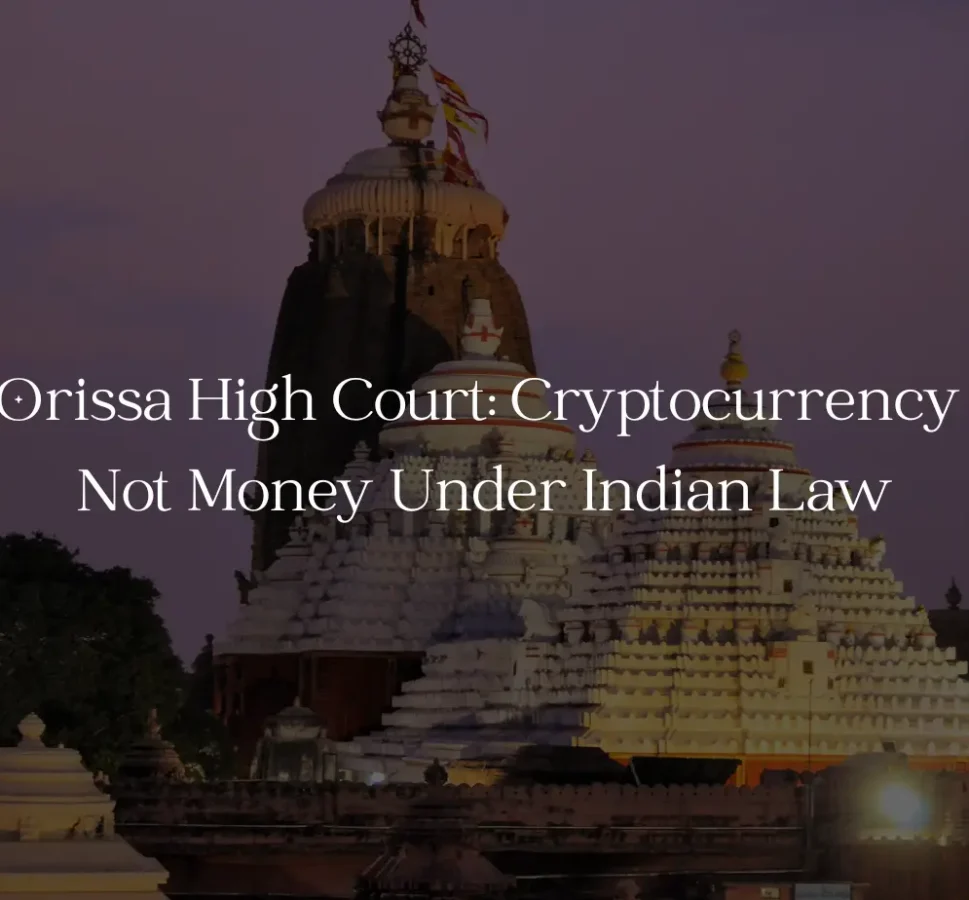- Orissa High Court clarifies cryptocurrency as not money under Indian law, affecting MLM scheme legality and investor protection.
- Court ruling emphasizes cryptocurrency investments not considered deposits under Indian laws.
- Accused in Yes World Token case not found guilty of cheating due to lack of evidence of dishonest inducement.
The Orissa High Court in India has made a significant ruling that clarifies the legal status of cryptocurrency transactions under Indian law. This landmark decision stemmed from a case involving allegations against two individuals accused of defrauding people through a Ponzi or multi-level marketing (MLM) scheme.
The main legal issue was whether these activities fell under the offenses outlined in the Prize Chits and Money Circulation Schemes (Banning) Act and the Odisha Protection of Interests of Depositors Act (OPID). The court, under the judgment of Justice Sasikanta Mishra, concluded that cryptocurrency does not qualify as money according to the Prize Chits and Money Circulation Schemes (Banning) Act, and investments made by the general public in cryptocurrency do not constitute deposits under the OPID Act.
“Cryptocurrency is not money within the meaning of Prize Chits and Money Circulation Schemes (Banning) Act and the investment made by the general public in cryptocurrency cannot partake the nature of deposit within the meaning of OPID Act.”
In this case, the accused were allegedly running a fraudulent cryptocurrency company named Yes World Token. They enticed people to invest by creating trust wallets and promising significant returns. This investment method encouraged participants to recruit new members, who were then offered bonuses or interest payments that grew with the number of recruits. The scheme exhibited characteristics of multi-level marketing, raising concerns about its legality and the protection of investors.
Justice Mishra observed that there was no evidence to suggest that the accused had deceitfully persuaded anyone to hand over property. He highlighted that the investment process did not support the claims of cheating, as the funds remained secure in the investors’ trust wallets.
The judge further explained that the offense under section 420 did not seem, at first glance, to be established. Additionally, there was no indication that any documents or records had been falsified, altered, or fabricated to meet the criteria for offenses under sections 467, 468, or 471 of the Indian Penal Code.





